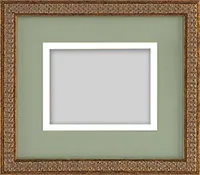Ok
Ok
What is the question
Cancel
My Account
Log In
Favorites
Saved Designs
Log In
Shopping Cart
Search
Oxidation
Definition: Oxidation refers to the chemical reaction in which a material reacts with oxygen over time. This reaction can cause changes in appearance, structural integrity, or chemical composition of materials, such as rust forming on iron or tarnish on silver.
Overview
Oxidation is a natural process that affects metals, organic materials, and certain pigments used in artwork. While some forms of oxidation can be aesthetically desirable, such as patina on bronze sculptures, uncontrolled oxidation can lead to deterioration and damage to both art and framing materials.
Effects on Materials
- Metals: Rust, tarnish, or discoloration on iron, copper, or silver.
- Paper & Organic Materials: Yellowing, weakening of fibers, or brittleness due to oxidizing acids.
- Paints & Pigments: Fading, darkening, or chemical breakdown of pigments over time.
- Adhesives & Coatings: Oxidation can reduce flexibility, cause cracking, or compromise bonding strength.
Prevention and Conservation
- Store artwork in controlled environments with low humidity and minimal exposure to pollutants.
- Use archival-quality, lignin-free, and buffered materials to slow chemical reactions.
- Apply protective coatings or sealants to metals to reduce exposure to air and moisture.
- Regular inspection of frames and artwork to identify early signs of oxidation or degradation.
Related Terms









